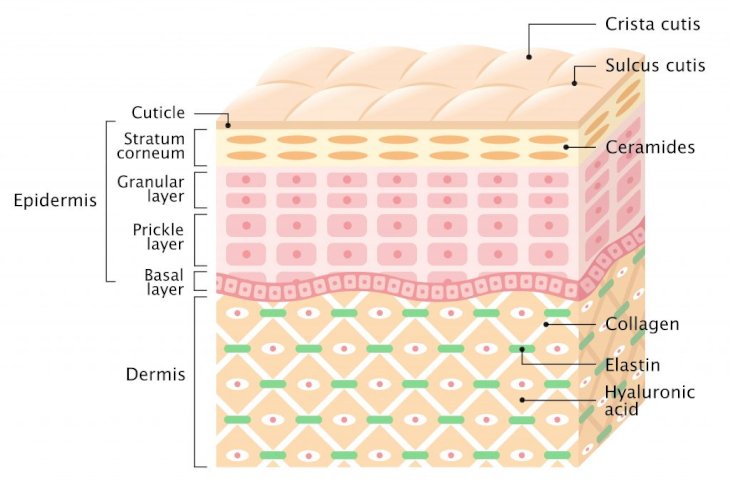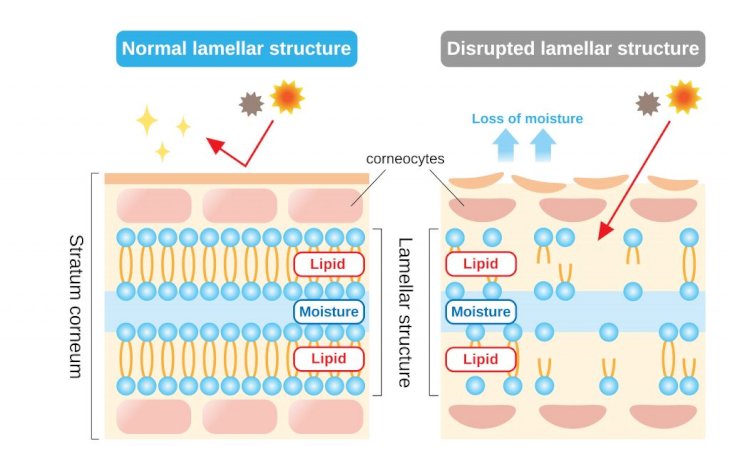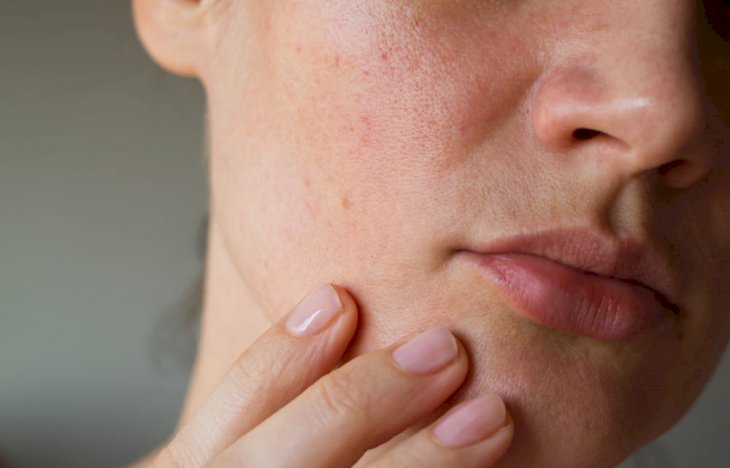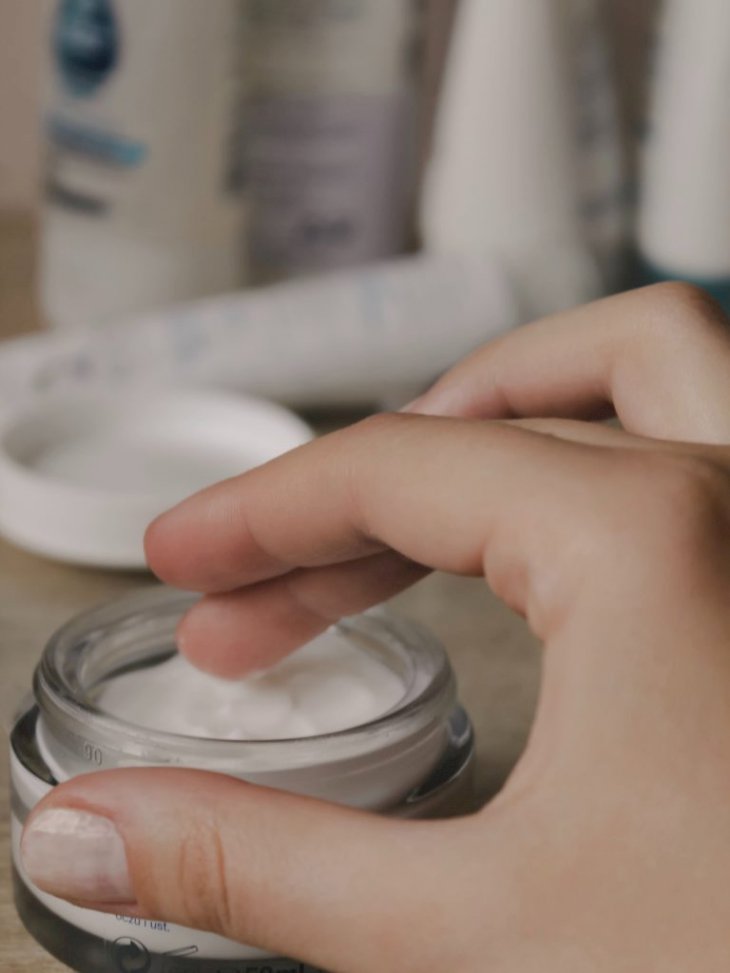
Ceramides: Extremely Important Ingredient or Overhyped?
Ceramides have been studied in depth especially in the skincare industry. Their importance in the healthy functioning of the skin simply cannot be overlooked.
Often championed as a miracle ingredient for battling dry skin, ceramides have become extremely well known in the skincare world. And it isn't just influencers blindly pushing the ingredient without research.
Dermatologists and skincare professionals are strong advocates for ceramides. Like retinol and vitamin C, adding ceramide to a skincare routine has shown marked improvements in the health of the skin.
What Is Ceramides?

Shutterstock
Ceramide is a fatty acid commonly known as lipids. These lipids form a natural part of skin cells and form more than 50 percent of the outer layer of skin known as the epidermis.
Thus it is no surprise that their benefits in skin care products have been widely researched and tested. They also play a vital role in brain and nervous system development.
What Do Ceramides Do For The Skin?

Shutterstock
"Ceramides are fatty acids in the skin that help to maintain the skin barrier and retain moisture and hydration. Extreme cold-weather temperatures, exposure to hot water, and dry heat can all deplete the ceramide stored in your skin. Using products that are fortified with ceramides help to restore your skin's barrier function and lock in moisture."
said Shereene Idriss, dermatologist of Union Square Laser Dermatology in New York City, to Allure.
By restoring the functioning of your skin barrier and locking in hydration, the ingredient helps offer anti-aging benefits. This is because fine lines and wrinkles are more noticeable on dry skin.
A-list facialist and skincare expert, Sarah Chapman expands on the benefits of ceramides in an interview with Glamour. She said:
“The correct levels of ceramides will result in smoother, softer skin that feels instantly more comfortable and refreshed. Ceramides are one of the anti-ageing ‘powerhouses’ and can be thanked for helping to keep skin dewy, plump and soothed.”
How Does It Work?

Shutterstock
Given the many benefits and claims, you can't help but wonder how the ingredient works. Ceramides improve the skin by creating a barrier to lock in moisture. This results in reduced dryness and irritation and protects against environmental damage.
"Ceramides are found in high concentrations within cell membranes. They hold skin cells together on the top layer of the skin, forming a protective layer that plumps the skin and retains moisture."
says New York City-based dermatologist Ellen Marmur to Allure.
What Skin Type Needs Skincare Rich In Ceramides?

Shutterstock
While all skin types can benefit from ceramides, skin that is dehydrated, stressed or aging shows the best results. It also works phenomenally for those with sensitive skin as their skin barrier tends to be compromised after reactions.
Eczema prone skin often sees increased healing, comfort, and restoration of skin when introduced to high levels of ceramides. While research is unclear on whether the skin’s naturally occurring ceramide levels correlate to the risk of developing certain skin conditions, research does show that those with eczema or psoriasis have fewer ceramides in their skin.
A common misconception is that those with acne-prone skin cannot use ceramides as it will block their pores. For acne-prone or easily congested skin, opt for lighter oil-free ceramide serums instead of thicker cream formulas.
Synthetic v.s. Natural Ceramides

Photo by Anastasiia Ostapovych on Unsplash
Currently, the only “natural” ceramides are the ones that occur within your skin. Most ceramides in skincare products are synthetic. The quality and efficacy of the ceramides are the same as the naturally occurring ones.
To encourage the natural production of ceramides within the skin, one can consider eating healthy fats. This includes foods such as sweet potatoes, soy, wheat, rice, and corn.
Things To Keep In Mind When Picking A Ceramide

Photo by GLOBENCER on Unsplash
- Packaging Matters: Ceramides should be stored in opaque, airtight bottles, and tubes. Jars expose the product to light and air with each use which will reduce the effectiveness of the product over time.
- Expiration Dates: Carefully examine the expiry date of the formula. Old or expired items will be ineffective.
- Choose The Type Of Ceramide Carefully: There are many types of ceramides available on the market. For the best results for dry, irritated skin, look for ceramides 1, 3, or 6-II. Ceramides 2 and 3 are also common choices. Ceramide may be listed in products as sphingosine as the amino acid chain includes ceramide as a molecule within the acid.
How To Get The Best Results?

Shutterstock
Like many other skincare ingredients, ceramides work best when paired with the right partner ingredients in your routine. To get the best out of your ceramide pair it with products that boast antioxidants, peptides, and retinol.
If you already have underlying skin conditions, speak to your health care provider or dermatologist before adding new products to your skincare routine. Before using any new products, make sure you patch test it to ensure you are not showing any allergic reactions to the item.